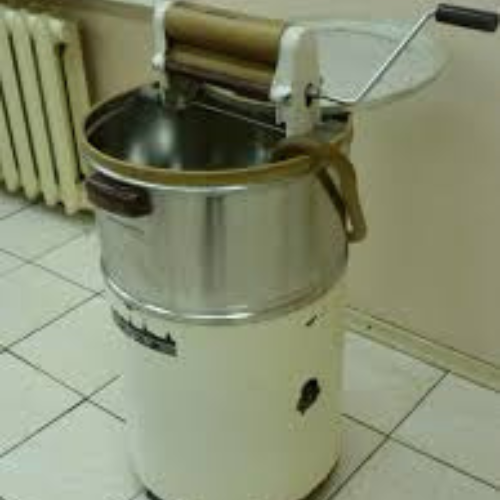This story has nothing to do with what I sell, but everything to do with who I am. It’s a part of my journey, and I want to share it.
Introduction
Not every childhood is filled with material comforts. Some are filled with quiet effort, shared responsibility, and learning to be happy with what you have. This is a story of growing up with less, not in poverty, but in a family that had to live below its means and make do with what was available. It’s about love, laughter, and the lessons that came from carrying my weight early on.
Early Responsibilities in a Big Family
Feeding My Little Brothers by Hand
When I was 14 years old, I took on a role that many might find surprising. While my hardworking mother cooked and cleaned, I looked after my little brothers. Two or three at a time, I’d line them up in one cot bed to keep them safe and get their meals ready, meals lovingly prepared by my beloved mum. They’d giggle and shake with their arms up, standing and full of energy, waiting for their teaspoonful to arrive.

Starting a one of your 5-a-day! Has never been easier>>
I’d feed them with a toddler-safe teaspoon. The meals I gave them were simple, just enough to keep their tummies full and satisfied, bananas, apples, mashed potatoes with carrots, chicken, and soup. We didn’t have a blender, so I’d cut the fruit in half and scrape it soft with the teaspoon. Their laughter made every bit of effort worth it.
Supporting My Mother While She Cared for Everyone
While I was feeding the boys, my mother was working non-stop—cooking, washing, tidying, and keeping our old house in shape. She carried so much on her shoulders. Even though we had a washing machine, I quietly washed my own socks and underwear in a bucket. I didn’t want to burden her with more. I felt I was old enough to do it myself. I didn’t have to, but something inside told me I should.
Life Inside a Century-Old Barn-Style House
No Running Water, No Inside Toilet
We lived in a house that looked more like a barn, right in the city. It was over a hundred years old, with draughty wooden frames and no direct water supply. We had to fetch water from a well outside for everything, drinking, cooking, and washing clothes. The toilet was outside, and it was cold to use during winter. That’s what we could afford, and we were satisfied.
The Riga Washing Machine and Water from the Well
Our washing machine was an old Latvian model called Riga. To use it, we had to fill it by hand using water from the well. It wasn’t easy, but we got by. We were grateful to have a roof over our heads. That’s what you do when you have to, you figure it out, get on with it, and stay happy with what you have.

Keeping Warm with Rolled-Up Newspapers
In winter, the wind would whistle through the windows. We couldn’t afford to lose heat. We bought firewood during the summer to prepare for winter. To keep out the draughts, we rolled up old newspapers and pressed them into the gaps. That small effort made the house just warm enough to carry on.
A Monthly Shopping Routine That Took All Day
Taking the Bus Out, Taxi Back
Once a month, my mother would go out to do a big food shop, using a list she had written down earlier. She’d be gone all day. She took the bus to the shops and market to save money, and a taxi to bring the full carrier bags home. While she was away, I stayed behind, fed my siblings, played with them, and kept the home steady.
Folding Sheets Instead of Nappies
We could only afford proper nappies for about one week each month. For the rest of the time, we used folded sheets, almost like something out of Victorian times. We saved the disposable nappies for night-time. This became part of my routine too, just another way to help.
Washing My Own Clothes in Secret
How to hand-wash clothes: step by step, with expert tips
After the day’s chores, I’d secretly wash my own clothes. I stopped giving my underwear or socks to my mother. She already had so much to do, and I wanted to lighten her load, even in small ways. I felt I was old enough to take on that responsibility.

Life in Social Housing
One Room for Eight of Us
Eventually, my mother was offered a social house—a single room for the eight of us. It had a toilet, but the kitchen and shower were communal, shared with neighbours. My mum and stepdad slept in one bed. My two sisters and three brothers shared another. I slept on the floor. It was tight, but we managed.
Shared Kitchen and Communal Shower
Living with shared facilities wasn’t always easy, especially with children, but it was better than what we had before. We no longer needed to carry water from the well, we had running water and central heating. We were grateful to have a space of our own, even if it was just one room with those added comforts.
Sleeping on the Floor and Making It Work
There was no bitterness in sleeping on the floor. I knew my role in the family, and I was proud of it. That was my place, and it mattered. I also met my best friend there, and my future wife, who was his sister. We’ve been together for nearly 24 years at the time of writing this post.
A Summer in the Countryside
Invited to a Friend’s Village
I helped feed the animals and clean the pig barn, learning honest work and humility. But what stayed with me most was picking raspberries to help my mum — selling them at market and returning home with pride, a bit of money in my pocket, and meals on the table.
Learning the Value of Work and Contribution
Picking Raspberries to Help My Mum
There was a forest nearby full of wild raspberries. I picked them to make some pocket money, and my friend’s mum sold them at the market stall. She gave me a bit of money from the raspberries sold. I saved as much as I could and gave it to my mum when I returned. I felt proud because I had earned something, and I could share it with someone I loved.
Potato Harvesting as Payment in Kind
In autumn, I helped during the potato harvest. I was paid in potatoes, and they were delivered straight to my mother. We were happy to receive them. It meant more meals and less worry. We hand-picked the potatoes, poured them into bags, and loaded them into a horse-drawn carriage.
Feeling Proud to Lighten My Mother’s Load
Everything I did was for her, for myself, and for our family. I was proud to carry my share of the weight. Proud to ease the load where I could. The most important thing to me was seeing my mum happy and hearing her say, “I’m proud of you, my child.” Those words meant everything.
Even today, I still have the habit of sharing. When I cook, I share. When I eat, I think of others. That instinct to give was planted in me as a child. Having little teaches you how to give a lot.
Reflection on Growing Up With Less
We Had to Live Below Our Means, But We Had Enough
We didn’t have a lot, and we couldn’t have whatever we wanted. But we had what we needed, and we learned to live within our means. We made do. That was the way it was. And still today, we can survive with little, because we know how to cook from scratch, fix our clothes, save, and plan ahead.
What I Learned from Responsibility at a Young Age
Being the oldest meant growing up quickly. I learned to be responsible, independent to some extent, and to look out for others. If I could turn back time, I wouldn’t change a thing. These life lessons shaped me. I am forever grateful for the hardships and difficulties that moulded me into the person I am today.
The Strength of Family, Even in Tough Conditions
We weren’t poor, but we were stretched. We didn’t feel sorry for ourselves. We made things work. The strength of our family wasn’t in what we had, it was in how we cared for each other. My mother knew how to live below our means. She budgeted, planned, and passed that knowledge down to me.
Conclusion
Making do wasn’t always easy, but it taught me how to stand tall with little. It showed me the value of work, the beauty of small things, and the power of family. I’ll share more personal stories in time. But for now, thank you for reading this one.
Frequently Asked Questions (FAQs)
1. What does “making do” mean in a working-class family?
“Making do” means living within your means, using what you have wisely, and finding creative ways to meet your needs. It’s about resilience, resourcefulness, and learning to be content without always having the newest or best things.
2. Is growing up with less the same as growing up in poverty?
Not necessarily. Growing up with less means living modestly, often with limited resources, but still having the essentials. Poverty suggests a lack of basic needs. Many families who “make do” manage to live well through careful planning, effort, and strong family support.
3. How can children learn responsibility from a young age?
Children often learn responsibility through necessity. When given trust and meaningful tasks, like helping with younger siblings or contributing to the household, they grow more capable, confident, and aware of others’ needs.
4. What are the benefits of growing up in a big family?
Big families teach teamwork, patience, sharing, and resilience. Children often take on helping roles, learning skills that shape their character and strengthen family bonds.
5. Why are personal stories like this important to share?
Personal stories offer truth, perspective, and connection. They show others they’re not alone in their struggles, celebrate values like family and gratitude, and preserve the wisdom passed down through lived experience.
